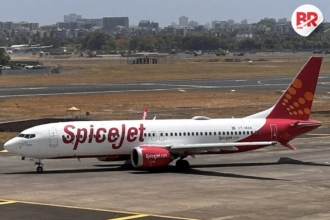
The long-delayed NSE IPO may finally be back on track as the National Stock Exchange (NSE) and the Securities and Exchange Board of India (SEBI) enter advanced talks to settle the controversial co-location case.
The case, pending before the Supreme Court, has been one of the key hurdles blocking NSE’s public listing plans.

According to people familiar with the matter, settlement talks restarted around six weeks ago, with both sides now negotiating the consent terms — primarily the amount NSE would pay to resolve the issue. SEBI has appealed a 2023 Securities Appellate Tribunal (SAT) order that partially overturned the regulator’s 2019 directive against the exchange.
What Is the Co-Location Case?
The co-location case involved allegations that certain brokers unfairly benefited by placing their servers closer to NSE’s, giving them faster access to market data and an unfair trading advantage. SEBI had accused the exchange of lapses in ensuring fairness and equal access, even though the SAT later found no fraud or violation of the SEBI Act.
The Stakes: NSE IPO and Market Confidence
The co-location case has loomed over the NSE for nearly a decade, effectively delaying its much-anticipated IPO. For years, SEBI’s regulatory overhang has deterred investors and cast a shadow on the exchange’s public image. Resolving the issue could clear the path for NSE to finally list, restoring confidence in both the bourse and India’s regulatory systems.
What Might the Settlement Cost?
Sources say SEBI may seek nearly twice the ₹643 crore that NSE paid in 2023 to settle the Trading Access Point (TAP) case — the most expensive consent settlement in SEBI’s history.
However, with SAT having issued a favorable ruling for NSE in 2023 — saying the co-location issue was not a violation of fraud regulations — the exchange is likely to push back against any steep penalty, setting the stage for intense negotiations.
Also Read SEBI Moves Closer to Approving NSE IPO After 8-Year Delay
NSE’s Consent Push
In a letter dated March 28, NSE formally requested SEBI to allow a consolidated settlement of all pending matters. The Governing Board has already approved this move, and NSE is now waiting for SEBI’s No Objection Certificate (NOC).
Emails sent to SEBI and NSE seeking comments remained unanswered at the time of publication.
How SEBI Calculates Settlement Amounts
SEBI follows a defined framework to calculate settlements:
- Base penalty amount per violation
- Proceeding Conversion Factor (PCF) – lowers the penalty for early settlements
- Regulatory Action Factor (RAF) – considers past compliance history
- Legal costs and disgorgement, if any
The key feature of SEBI’s consent mechanism is that the settlement does not require admission or denial of guilt, allowing entities to resolve cases without stigma while protecting investor interests.
What Happens Next?
If SEBI and NSE reach an agreement, the terms will be placed before the Supreme Court, which must approve withdrawal of the case. Legal experts estimate the process could take another 3–4 months to conclude, assuming court approval.
Multi-Layered Clearance Ahead
Once a proposal is submitted:
- SEBI’s internal committee reviews the application.
- The High Powered Advisory Committee (HPAC) — comprising a retired judge, a former SEBI Whole-Time Member, and legal experts — evaluates the case.
- SEBI’s Whole-Time Members then make the final decision.
If approved, a demand notice is issued, and the matter concludes once the settlement is paid.
Background: From Penalty to Partial Reprieve
SEBI’s 2019 order had directed NSE to disgorge ₹625 crore plus interest. But in 2023, the SAT ruled that NSE hadn’t violated the Prohibition of Fraudulent and Unfair Trade Practices (PFUTP) norms, and the penalty demand was “unwarranted.” The tribunal said it was merely a “non-adherence of a circular”, not a breach of law.
“SEBI and NSE must act pragmatically,” said advocate Vishwanathan Iyer. “A timely, transparent settlement will serve the public interest and demonstrate institutional maturity. It could also be the final boost needed to revive NSE’s IPO momentum.”
The NSE IPO, once expected to be one of India’s biggest public offerings, has been in limbo for years. With investor sentiment rising and markets performing well, a resolution to the co-location case could finally unlock the gates for India’s largest stock exchange to go public.
Also Read Sensex Soars Over 600 Points, Nifty Breaches 25,000 as Banks and Midcaps Lead the Charge












